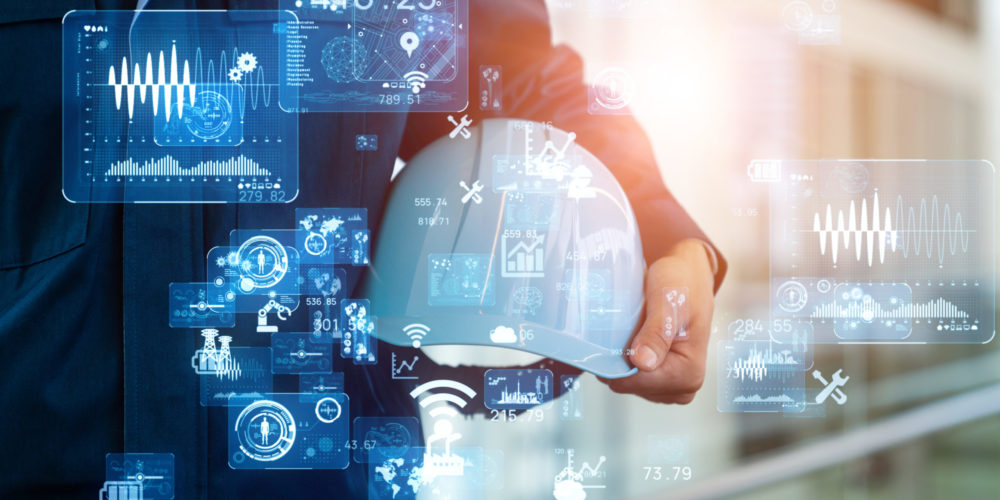
AI
Technological advancements have been instrumental in shaping human civilization throughout history. From the invention of the wheel to the era of space exploration, each leap forward has had a profound impact on the way we live.
In the contemporary age, we find ourselves standing on the precipice of unprecedented technological transformations that have the potential to revolutionize every aspect of human existence. In this essay, we will explore a selection of technological advancements that have already changed or hold the promise to change the human lifestyle in profound ways.
Artificial Intelligence: Unleashing the Power of Intelligence:
Artificial Intelligence (AI) has emerged as a catalyst for transformative change in recent years. With the ability to analyze vast amounts of data, AI has unlocked unprecedented potential in various domains. One area where AI has made significant strides is healthcare.
Machine learning algorithms can now diagnose diseases with remarkable accuracy, enabling early detection and personalized treatments. AI-driven robotic surgeries have reduced the risks associated with complex procedures, making them safer and more precise. Furthermore, AI-powered virtual assistants and chatbots have improved customer service and transformed the way we interact with technology.
AI is also reshaping industries such as finance and transportation. Financial institutions are leveraging AI algorithms for fraud detection and risk assessment, while autonomous vehicles are being developed to revolutionize transportation, making it safer, more efficient, and environmentally friendly.
Moreover, AI is contributing to advancements in scientific research, enabling scientists to analyze complex data sets and make breakthrough discoveries in areas such as drug development and climate modeling.
The Internet of Things (IoT): Interconnectedness and Efficiency:
The Internet of Things (IoT) refers to the network of interconnected devices and systems that communicate and share data. IoT has revolutionized our daily lives, from smart homes to smart cities. The ability to remotely control household appliances, monitor energy consumption, and automate tasks has enhanced convenience and efficiency.
Furthermore, IoT has the potential to transform urban landscapes through smart transportation systems, optimized energy usage, and intelligent infrastructure management. For example, smart grids can monitor and regulate electricity usage, reducing waste and promoting sustainability.
IoT has also facilitated the growth of wearable technology, allowing individuals to track their health and fitness levels, monitor vital signs, and receive personalized recommendations for a healthier lifestyle. Moreover, in industrial settings, IoT-enabled sensors and devices are improving productivity, safety, and maintenance practices by providing real-time data and predictive analytics.
Renewable Energy: Paving the Way for a Sustainable Future:
Technological advancements in renewable energy have begun to redefine the way we generate and consume power. Solar panels, wind turbines, and advancements in energy storage solutions are driving the shift towards cleaner and more sustainable energy sources. This transition not only mitigates the impact of climate change but also offers the promise of energy independence and reduced reliance on fossil fuels.
The integration of renewable energy into power grids will empower communities and countries to achieve greater self-sufficiency and resilience. Additionally, advancements in electric vehicle technology are accelerating the adoption of sustainable transportation, reducing greenhouse gas emissions and improving air quality.
Virtual and Augmented Reality: Redefining Human Experience:
Virtual Reality (VR) and Augmented Reality (AR) have transformed the way we interact with the digital world. VR provides immersive experiences, allowing individuals to explore new realms, learn in simulated environments, and even treat mental health disorders.
On the other hand, AR overlays digital content onto the real world, revolutionizing fields such as education, gaming, and architecture. By blending virtual and real-world elements, VR and AR have the potential to reshape how we learn, work, and entertain ourselves. Industries such as tourism, real estate, and training simulations have already embraced these technologies to enhance customer experiences and improve learning outcomes.
Moreover, VR and AR are revolutionizing the field of remote collaboration. With the ability to create virtual meeting spaces and share 3D models, individuals from different geographical locations can collaborate seamlessly, transcending physical barriers. This has significant implications for industries such as design, engineering, and telemedicine, enabling experts to provide remote assistance and expertise.
Blockchain Technology: Revolutionizing Trust and Security:
Blockchain technology has emerged as a disruptive force with immense potential. Its decentralized and transparent nature has the ability to revolutionize various industries, including finance, supply chain management, and cybersecurity.
Through smart contracts and digital ledgers, blockchain ensures trust and security, eliminating the need for intermediaries and reducing the risk of fraud. By decentralizing control, blockchain empowers individuals and facilitates peer-to-peer transactions on a global scale. This technology has the potential to transform financial services, streamline global trade, and provide secure digital identities.
Moreover, blockchain has the potential to address critical challenges such as poverty and inequality. By providing secure and transparent systems for distributing aid and resources, blockchain can ensure that assistance reaches those who need it most, bypassing corruption and inefficiencies.
Furthermore, blockchain-based decentralized applications are enabling individuals in underserved regions to access financial services and participate in the global economy, fostering financial inclusion and empowerment.
To conclude, technological advancements have become the cornerstone of progress in the modern era, offering immense potential to reshape the human lifestyle. Artificial Intelligence, the Internet of Things, renewable energy, virtual and augmented reality, and blockchain technology are just a few examples of the transformative innovations that have already made an impact or hold the promise to revolutionize the way we live, work, and interact.
However, as with any transformative force, these advancements also raise ethical and societal challenges that need to be addressed. It is essential that we embrace these technologies responsibly, ensuring that they benefit humanity as a whole while minimizing any potential adverse effects. By harnessing the power of technology wisely, we can pave the way for a future where human potential is enhanced, and the quality of life is elevated to new heights.
By: Samarth Kharbanda
Write and Win: Participate in Creative writing Contest & International Essay Contest and win fabulous prizes.


